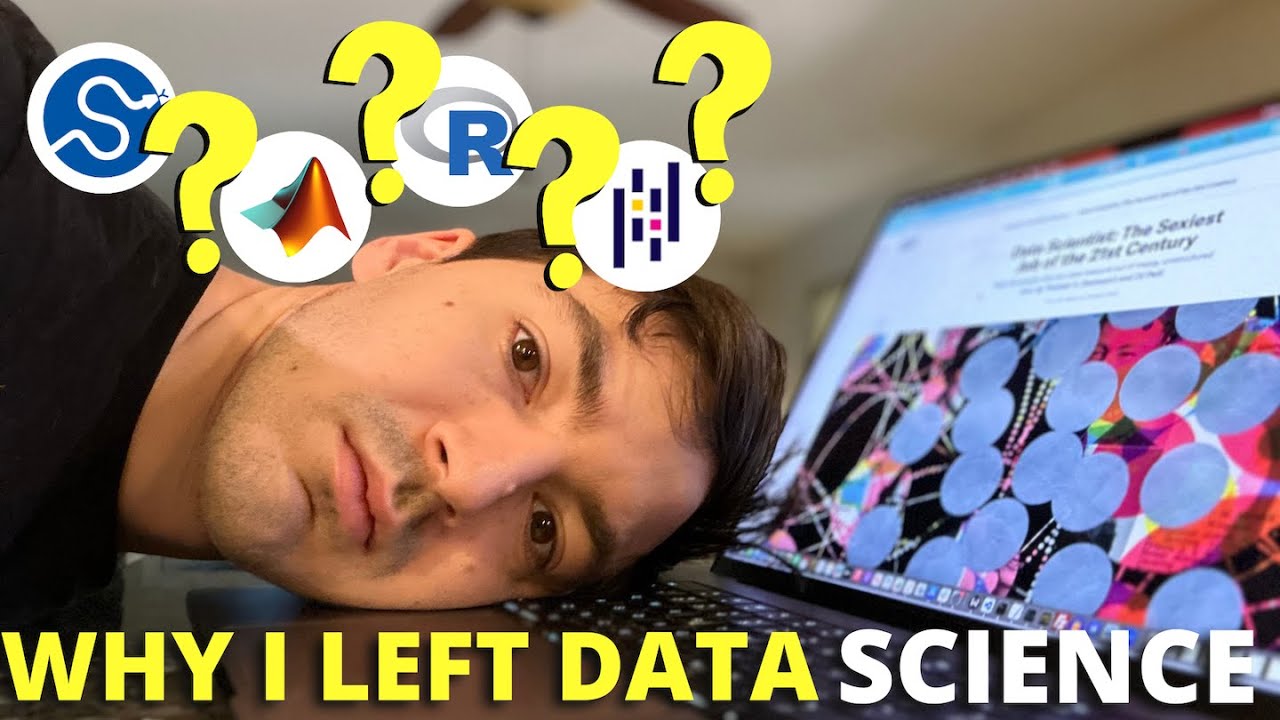How I Became a Data Analyst & Got a Job! (No CS Degree)
Summary
TLDRThe speaker shares their journey from a grueling consulting job to becoming a data analyst without a computer science degree. They highlight identifying skill gaps, using resources like W3 schools and DataCamp to learn SQL, gaining hands-on experience, and leveraging mentorship. The speaker emphasizes the importance of soft skills and persistence, and introduces a scholarship aimed at increasing opportunities for underrepresented groups in tech, offering a comprehensive data analytics program with a job guarantee.
Takeaways
- 🎓 The speaker failed the Law School exam and felt stuck, leading to a career change to data analysis without a computer science degree.
- 🕒 The initial job involved long hours and commutes, which prompted the desire for a career with more control over life and work-life balance.
- 🔍 Identifying a skill gap was the first step, comparing existing skills with the job description of a data analyst to determine what needed to be learned.
- 📚 The speaker dedicated 4 hours a day to studying SQL and data analysis through resources like W3 schools and DataCamp.
- 💡 Gaining hands-on experience was crucial, using SQL and Excel to automate reports at the current job in the litigation industry.
- 🤝 Shadowing tech team members with computer science backgrounds provided mentorship and practical insights into databases.
- 📝 Updating the resume to reflect new technical skills and experiences, aligning it with the data analyst job description.
- 👨🏫 Preparing for technical interviews included practicing SQL questions on platforms like LeetCode to be ready for assessments.
- 📈 The importance of soft skills was highlighted, as they can lead to promotions and more opportunities in a data career.
- 🏆 Credentials were less important than the ability to learn and apply data analysis skills, which can be acquired through various means.
- 🌟 Initiative and persistence were key in transitioning from a non-tech background to a technical career in data analysis.
- 📈 The speaker partnered with CareerFoundry to promote their data analytics program and Changemakers scholarship for underrepresented groups in tech.
Q & A
What was the speaker's initial situation after failing the Law School exam?
-The speaker felt lost, worked 60 hours a week in a job they hated, and felt stuck in their career.
What led the speaker to consider a career as a data analyst?
-A friend mentioned a remote data analyst job, which sparked interest due to the flexibility and the potential for a better work-life balance.
How did the speaker identify the skills they were lacking to become a data analyst?
-The speaker compared their existing skills with the job description of a data analyst to determine the gaps they needed to fill.
What resources did the speaker use to learn SQL and start their journey as a data analyst?
-The speaker used W3 schools and DataCamp to learn SQL and practiced writing select statements and conditional statements.
How did the speaker gain hands-on experience with SQL in their current job?
-The speaker automated a report using SQL on claims data they had access to as a consultant in the litigation industry.
What was the speaker's approach to learning database knowledge without a computer science background?
-The speaker shadowed and sought mentorship from the tech team at work, who had computer science backgrounds, and practiced creating and loading data tables.
How did the speaker update their resume to reflect their new data analyst skills?
-The speaker made their resume more technical, highlighted their transferable soft skills, and used the job description as bullet points to showcase relevant experiences.
What preparation did the speaker undertake for the technical assessment during the job interviews?
-The speaker practiced SQL questions on LeetCode to feel more prepared and to calm their nerves for the interview.
What is the Changemakers scholarship mentioned by the speaker, and who is it aimed at?
-The Changemakers scholarship is offered by CareerFoundry to increase opportunities for underrepresented groups in tech, focusing on ensuring anyone has the chance to shape their career regardless of identity or background.
What are the three key lessons the speaker learned from their journey to becoming a data analyst?
-Credentials don't matter as much as skills, soft skills are more important than technical skills for career advancement, and taking initiative and being persistent are crucial for a successful career transition.
How does the speaker encourage those interested in a data analyst career to get started?
-The speaker recommends CareerFoundry's data analytics program, which is flexible, online, and offers a job guarantee, as well as the Changemakers scholarship for those eligible.
Outlines

This section is available to paid users only. Please upgrade to access this part.
Upgrade NowMindmap

This section is available to paid users only. Please upgrade to access this part.
Upgrade NowKeywords

This section is available to paid users only. Please upgrade to access this part.
Upgrade NowHighlights

This section is available to paid users only. Please upgrade to access this part.
Upgrade NowTranscripts

This section is available to paid users only. Please upgrade to access this part.
Upgrade NowBrowse More Related Video

How I Became a Software Engineer at Meta With No Computer Science Degree

FASTEST Way to Learn Coding and ACTUALLY Get a Job

Starting a Career in Data Science (10 Thing I Wish I Knew…)

An Entire Computer Science Degree in 11 Minutes

Data Analyst Certificates Are Dead

Why I Left Data Science - And Picked Data Engineering Instead
5.0 / 5 (0 votes)